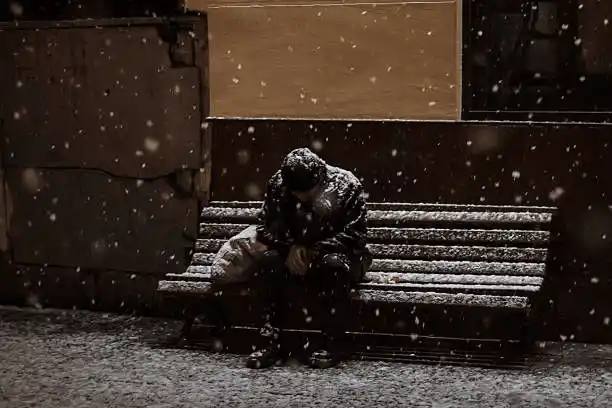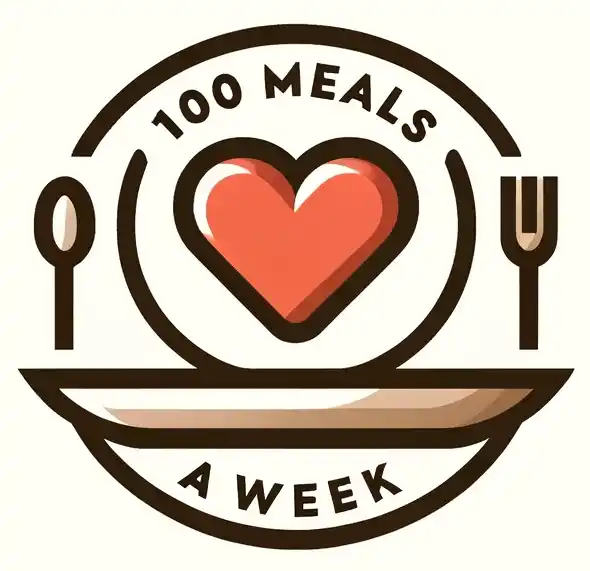Zeeshan and Karina Hayat’s Call to Action: Supporting the Vulnerable This Winter

Winter is here, and with it comes a brutal spotlight on the cracks in our society. Rising housing costs are displacing families, forcing them from their homes. Community hubs—critical lifelines for the vulnerable—are closing their doors under the weight of unaffordable rents. Survivors of violence are left stranded, with nowhere to seek refuge.
For those on the streets, the bitter cold is more than a discomfort—it’s a life-threatening gamble. Yet, beyond the physical toll lies a profound emotional burden: the crushing sense of invisibility and isolation. For many, the festive season, a time of joy for others, sharpens the sting of their circumstances, amplifying feelings of despair.
The statistics are sobering: in Canada, over 235,000 individuals experience homelessness annually, and many of them face life-threatening conditions during winter. This isn’t a seasonal inconvenience—it’s a full-blown crisis. The urgency to act cannot be overstated. This winter, we must mobilize resources, move beyond observing these injustices and act decisively. Here are actionable, impactful steps you can take to confront this crisis head-on.
1. Advocate for Affordable Housing Policies
We need to stop treating homelessness like it’s inevitable. It’s not. It’s a failure of the system, not the individual. According to the Canadian Mortgage and Housing Corporation (CMHC), affordable housing is defined as shelter costing less than 30% of a household’s pre-tax income. However, more than 1 in 8 Canadian households spend over 50% of their income on rent, placing them at extreme risk of homelessness.
Why It Matters: Affordable housing policies can prevent homelessness before it begins. Studies show that investing $10 in housing support can save $21 in healthcare and shelter costs later.
2. The Community Space Crisis
Across the Greater Toronto Area, community spaces are being obliterated by skyrocketing rents. These spaces provide more than shelter—they are hubs of safety, nourishment, and healing. When a community centre closes, the ripple effects are catastrophic as many people who have been relying on these programs are left adrift.
Identify at-risk community centres in your area and offer support. This could be through financial donations, fundraising efforts, or volunteering.
Why It Matters: Community spaces are proven to reduce social isolation and improve mental health. For every $1 invested in community-based prevention programs, an estimated $7 is saved in long-term healthcare and law enforcement costs.
3. Create a Local Emergency Response Network
Hypothermia, frostbite, and even death are imminent threats for individuals living on the streets during winter. Often, delays in emergency response leave vulnerable individuals exposed for hours.
Partner with neighbours, community leaders, and local shelters to establish a winter emergency response network. This can include distributing warming kits, identifying high-risk individuals, and ensuring local shelters are equipped to handle overflow.
Why It Matters: Immediate intervention saves lives. A single warming station can reduce winter exposure-related deaths by 30% in urban centres.
4. Volunteer Strategically During Winter Months
Picture this: an old person sleeping in a frozen alleyway tonight because shelters are full. Now imagine them being given not just a warm blanket, but offering essential services such as medical care, mental health support, and educational resources. That’s what 100 Meals a Week and similar organizations are doing. And it works.
But programs like this don’t run on goodwill alone. They need funding, volunteers, and political support. Many charitable organizations experience a surge in need during winter but often lack sufficient volunteers to meet demand.
Identify gaps in services where your time can have the greatest impact. This might include preparing meals, distributing warm meals, or assisting with outreach programs targeting individuals experiencing homelessness.
Why It Matters: According to Volunteer Canada, every hour of volunteer time provides an estimated economic value of $33.49, amplifying the capacity of non-profits to deliver critical services.
5. Strengthen Mental Health Support for the Homeless
Mental health challenges are often intertwined with homelessness, yet stigma and a lack of accessible resources leave many without the help they need. Through our work with Pixel Moments, I’ve seen first-hand the transformative impact of community-driven mental health advocacy. By partnering with local clinics, non-profits, and shelters, we can offer free counselling, support groups, and outreach programs specifically designed for those facing homelessness.
Why It Matters: The journey of Pixel Moments showed me the power of collective action—we raised over $299,416 for mental health programs. Accessible mental health care can reduce homelessness to a large extent and give individuals a chance to rebuild their lives.
6. Advocate for Sustainable Solutions
Many initiatives provide temporary relief but fail to address systemic causes like income inequality, housing shortages, and inadequate healthcare.
Advocating for policies that drive lasting change—such as universal basic income (UBI), expanded healthcare access, and investments in affordable housing infrastructure—is essential. Support candidates and leaders committed to these priorities.
Why It Matters: Countries piloting UBI, such as Finland, have seen homelessness drop proving that systemic approaches can yield transformative results.
A Call to Transformative Action
The need of the hour isn’t just generosity; it’s courage. Courage to confront hard truths, challenge broken systems, and step up in ways that matter. We can reimagine a society that leaves no one behind through intentional actions, innovative solutions, and a philosophy rooted in compassion and equity.
Through 100 Meals a Week, you can make a direct impact by donating winter essentials—clothing, blankets, and more—to help those in need survive the harsh winter months. Join us in making a difference today!
What action will you take today to help create a society where no one is left out in the cold?
